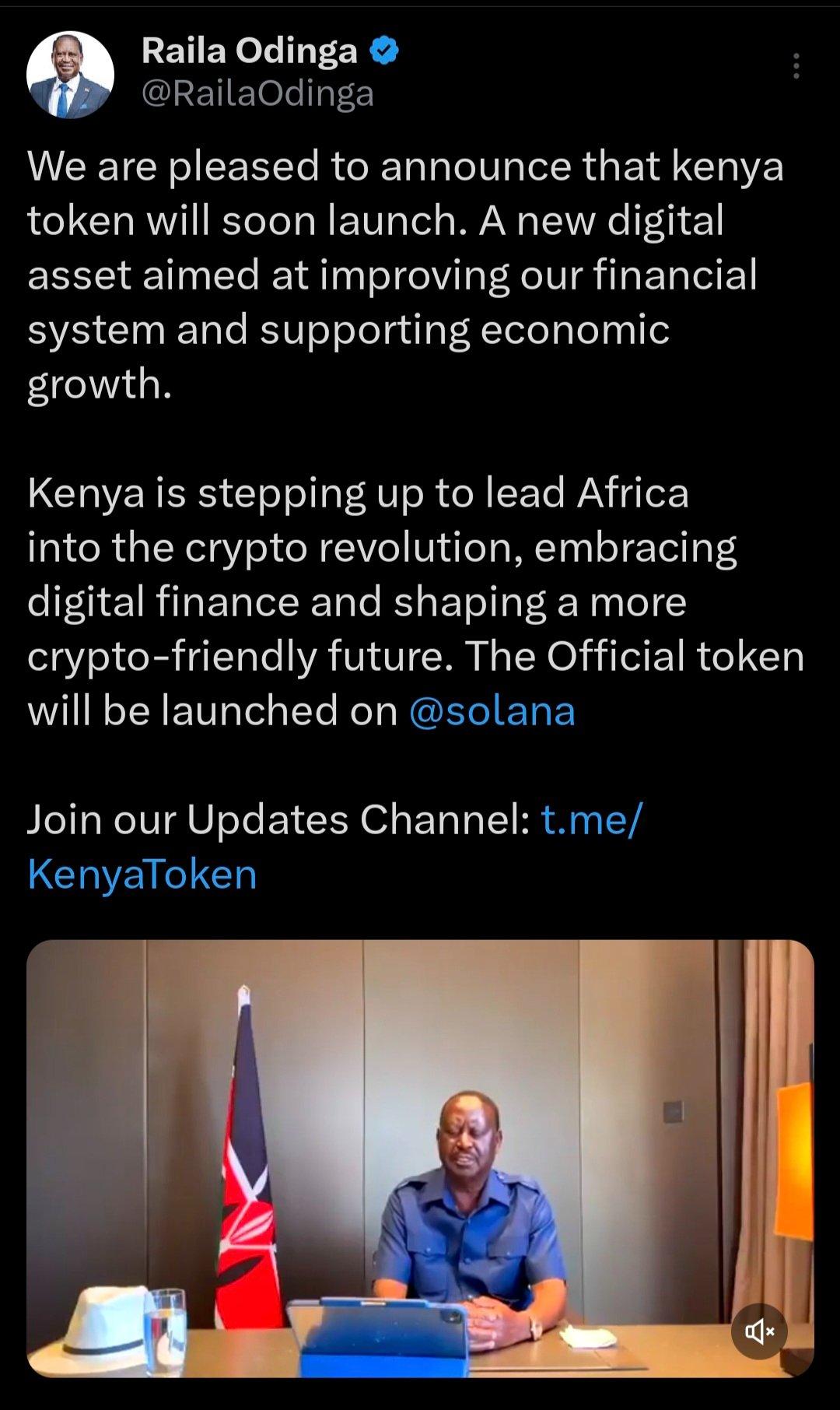The former prime minister of Kenya appears to have been hacked to promote a fraudulent Token project. The announcement post on his X profile has since been deleted, and the video is almost certainly a deepfake.
The name and branding of this project is very similar to another semi-official project that has many warning signs. This confusing situation leaves many unanswered questions.
What is Kenya Token ?
Kenya has a notable presence in the international crypto community, with bright spots in grassroots adoption and major government-led business partnerships .
However, the new “Kenya Token” appears to have tried to profit from the situation rather than contribute to it.
 Fake announcement about Kenya Token. Source: X
Fake announcement about Kenya Token. Source: XRaila Odinga, former Prime Minister of Kenya, was apparently hacked to announce the Kenya Token project. It was soon removed , raising concerns of a hack.
When comparing the accompanying video with Odinga's actual voice , it seems highly likely that this post is an AI-generated deepfake.
The scam may have collapsed, but many questions remain unanswered. These warning signs can be an important lesson, especially when anti-scam techniques are failing to protect the community .
Who is behind this scam?
For example, analysts have detected a large degree of internal pooling with Kenya Digital Token (KDT), a completely separate asset that appears to be officially endorsed by current government officials, so the scam project may have been trying to take advantage of KDT’s brand.
However, even this semi-official project is full of warning signs. Shortly after a KDT wallet performed a TGE , 141 other accounts seized 20% of the total supply. The website promoted these Token as “locked for the people,” but in reality they are in private hands.
This has led to speculation in the community that Kenya Digital Token could be a Rug Pull in the making. After all, LIBRA promoter Hayden Davis has been in advanced talks with senior Nigerian officials to launch a meme coin. In other words, there is plenty of precedent for semi-official Token scams.
Technically, Davis could have been directly involved in Kenya Digital Token. He won a major legal breakthrough last month and was involved in another Token hijacking less than a week later. Without consequences for fraudulent behavior, these patterns could continue.
All that said, a little early skepticism about an unrelated project might have helped the community. The deepfake scam had nothing to do with Kenya Digital Token, but the “real” project could have been a scam too.
Even if the rumored connection between the Token is incorrect, the underlying hesitation is not without reason.
Warning signs like these are extremely important in today’s environment. If investors want to stay ahead of this crypto crime cycle, they need to develop sharp instincts and extensive due diligence.







